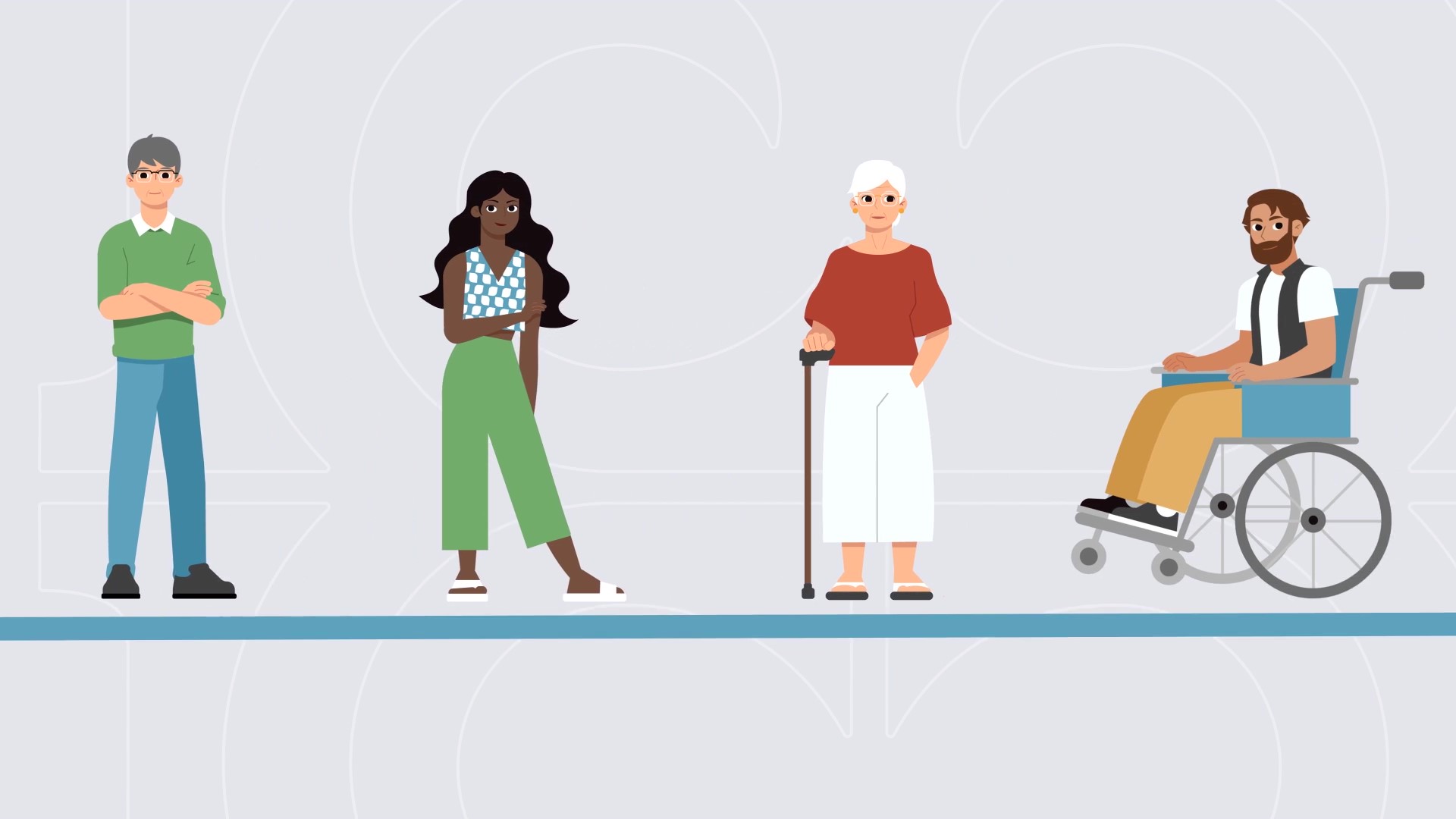Ngā Huarahi Whakatau
Review of Adult Decision-Making Capacity Law
Te Aka Matua o te Ture | Law Commission is reviewing the law relating to adult decision-making capacity.
Te Aka Matua o te Ture | Law Commission is reviewing the law relating to adult decision-making capacity.
The main law we are looking at is the Protection of Personal and Property Rights Act 1988. This Act sets out decision-making arrangements which can apply when someone does not have decision-making capacity, such as enduring powers of attorney, welfare guardians and property managers.
Things we are considering include:
We published a Preliminary Issues Paper in November 2022. Consultation on that paper closed on 3 March 2023.
We published a Second Issues Paper in April 2024. Consultation on that paper closed on 21 June 2024.
The feedback we have received on these papers will inform the recommendations we make in our Final Report. We intend to give our Final Report to the Minister of Justice in 2025.
The Second Issues Paper
The Second Issues Paper contains our detailed analysis of issues with the current law and suggests possible options for reform.
The Second Issues Paper has three parts:
Read the Second Issues Paper:
We also published Key Topic documents on a few of the most important topics that we cover in the Second Issues Paper. These are topics we think are most relevant to people’s everyday experiences.
The Key Topics summarise relevant information from the Second Issues Paper in plain language. The Key Topics are available in a range of accessible formats: New Zealand Sign Language, Easy Read, audio, large print and Braille. They are also available in te reo Māori.
Read the Key Topics:
Te Aka Matua o te Ture | Law Commission is an independent state agency that provides law reform advice to the Government.
Our independence makes us different from many state sector agencies. The Government does not direct how we carry out our work or the recommendations we make.
We approach each law reform task with an open mind, undertake research and engagement, and consider the broader policy context. We then make recommendations to the Government to improve the law. These recommendations are published in a report to the Minister of Justice.
The Minister must present our report to Parliament. The Government decides whether and how it will change the law.
There has been increased recognition of the human rights of disabled people and a shift towards supporting people to make their own decisions.
There has also been increased recognition that the law in this area does not adequately take into account te Tiriti o Waitangi, te ao Māori or the multi-cultural nature of Aotearoa New Zealand. As well, our population is changing. Aotearoa New Zealand has an increasingly aging and culturally diverse population.
In light of these developments, the Minister of Justice has asked Te Aka Matua o te Ture | Law Commission to carry out a review and make recommendations to improve the law.
The scope of Te Aka Matua o te Ture | Law Commission’s review is set out in our Terms of Reference.
The focus of this review is the Protection of Personal and Property Rights Act (PPPR Act). It is the primary piece of legislation relating to decision-making capacity. It provides several decision-making arrangements for people who do not have decision-making capacity, such as welfare guardians, property managers and enduring powers of attorney.
Other laws which address decision-making capacity have a specific focus – such as compulsory treatment for substance addiction, the conduct of litigation, entry into a contract or emergency medical treatment. Each of these areas of law raise different considerations and human rights obligations and reviewing them needs to be done on a case-by-case basis.
It is not practicable to review all these laws and the PPPR Act in a single review. However, the work we do in this review will materially advance future consideration of other, more specific, laws.
Te Aka Matua o te Ture | Law Commission launched this review with the publication of its Terms of Reference in October 2021.
We published our Preliminary Issues Paper in November 2022. That paper provided high-level information about current law and practice, and asked questions about people’s experiences and views on key issues. Consultation on that paper closed on 3 March 2023.
We published our Second Issues Paper in April 2024. That paper looked at the current law in much more detail and proposed options for reform. Consultation on that paper closed on 21 June 2024.
We are now preparing our final report. This will recommend to the Government how the law should be reformed. We intend to provide our final report to the Minister of Justice in 2025.
Information given to Te Aka Matua o te Ture | Law Commission is subject to the Official Information Act 1982 and the Privacy Act 2020.
For more information about the Official Information Act, please visit the Ombudsman’s website. For more information about the Privacy Act, please visit the Privacy Commissioner’s website.
If you sent us a submission, we will consider it in our review and keep it as part of our official records. We may publish the submission on our website, refer to it in our publications and use it to inform our work in other reviews.
Your submission may contain personal information. You have the right to access and correct your personal information at any time.
You can request that we do not publish your name or any other identifying information in your submission. If you request this, we will not publish your name or any other information that we think might identify you or others on our website or in our publications.
However, if you made a submission on behalf of an organisation, we may publish the name of that organisation.
If we receive a request under the Official Information Act that includes your submission, we may be required to release it. If you have requested that we not publish your name or other identifying information, we will not release that information under the Official Information Act without consulting with you.
If you have questions about the way we manage your submission, you can contact us at huarahi.whakatau@lawcom.govt.nz.
Some people may find this information emotional or distressing. If you are upset or distressed you can call or text 1737. This helpline service is free and is available 24 hours a day. You’ll get to talk or text with a trained counsellor. The service is provided by Whakarongorau Aotearoa|New Zealand Telehealth Services.
If you are worried about your safety, or the safety of someone you are supporting, you can seek help. If you or someone else is in immediate danger, call 111 and ask for the police.
If you have any questions, need assistance or wish to raise an accessibility issue, please contact us:

What happens to your contact details? Please read the Law Commission’s Privacy and Transparency Statement.
Review of Adult Decision-Making Capacity Law
We firmly believe that the internet should be available and accessible to anyone, and are committed to providing a website that is accessible to the widest possible audience, regardless of circumstance and ability.
To fulfill this, we aim to adhere as strictly as possible to the World Wide Web Consortium’s (W3C) Web Content Accessibility Guidelines 2.1 (WCAG 2.1) at the AA level. These guidelines explain how to make web content accessible to people with a wide array of disabilities. Complying with those guidelines helps us ensure that the website is accessible to all people: blind people, people with motor impairments, visual impairment, cognitive disabilities, and more.
This website utilizes various technologies that are meant to make it as accessible as possible at all times. We utilize an accessibility interface that allows persons with specific disabilities to adjust the website’s UI (user interface) and design it to their personal needs.
Additionally, the website utilizes an AI-based application that runs in the background and optimizes its accessibility level constantly. This application remediates the website’s HTML, adapts Its functionality and behavior for screen-readers used by the blind users, and for keyboard functions used by individuals with motor impairments.
If you’ve found a malfunction or have ideas for improvement, we’ll be happy to hear from you. You can reach out to the website’s operators by using the following email
Our website implements the ARIA attributes (Accessible Rich Internet Applications) technique, alongside various different behavioral changes, to ensure blind users visiting with screen-readers are able to read, comprehend, and enjoy the website’s functions. As soon as a user with a screen-reader enters your site, they immediately receive a prompt to enter the Screen-Reader Profile so they can browse and operate your site effectively. Here’s how our website covers some of the most important screen-reader requirements, alongside console screenshots of code examples:
Screen-reader optimization: we run a background process that learns the website’s components from top to bottom, to ensure ongoing compliance even when updating the website. In this process, we provide screen-readers with meaningful data using the ARIA set of attributes. For example, we provide accurate form labels; descriptions for actionable icons (social media icons, search icons, cart icons, etc.); validation guidance for form inputs; element roles such as buttons, menus, modal dialogues (popups), and others. Additionally, the background process scans all the website’s images and provides an accurate and meaningful image-object-recognition-based description as an ALT (alternate text) tag for images that are not described. It will also extract texts that are embedded within the image, using an OCR (optical character recognition) technology. To turn on screen-reader adjustments at any time, users need only to press the Alt+1 keyboard combination. Screen-reader users also get automatic announcements to turn the Screen-reader mode on as soon as they enter the website.
These adjustments are compatible with all popular screen readers, including JAWS and NVDA.
Keyboard navigation optimization: The background process also adjusts the website’s HTML, and adds various behaviors using JavaScript code to make the website operable by the keyboard. This includes the ability to navigate the website using the Tab and Shift+Tab keys, operate dropdowns with the arrow keys, close them with Esc, trigger buttons and links using the Enter key, navigate between radio and checkbox elements using the arrow keys, and fill them in with the Spacebar or Enter key.Additionally, keyboard users will find quick-navigation and content-skip menus, available at any time by clicking Alt+1, or as the first elements of the site while navigating with the keyboard. The background process also handles triggered popups by moving the keyboard focus towards them as soon as they appear, and not allow the focus drift outside it.
Users can also use shortcuts such as “M” (menus), “H” (headings), “F” (forms), “B” (buttons), and “G” (graphics) to jump to specific elements.
We aim to support the widest array of browsers and assistive technologies as possible, so our users can choose the best fitting tools for them, with as few limitations as possible. Therefore, we have worked very hard to be able to support all major systems that comprise over 95% of the user market share including Google Chrome, Mozilla Firefox, Apple Safari, Opera and Microsoft Edge, JAWS and NVDA (screen readers).
Despite our very best efforts to allow anybody to adjust the website to their needs. There may still be pages or sections that are not fully accessible, are in the process of becoming accessible, or are lacking an adequate technological solution to make them accessible. Still, we are continually improving our accessibility, adding, updating and improving its options and features, and developing and adopting new technologies. All this is meant to reach the optimal level of accessibility, following technological advancements. For any assistance, please reach out to
